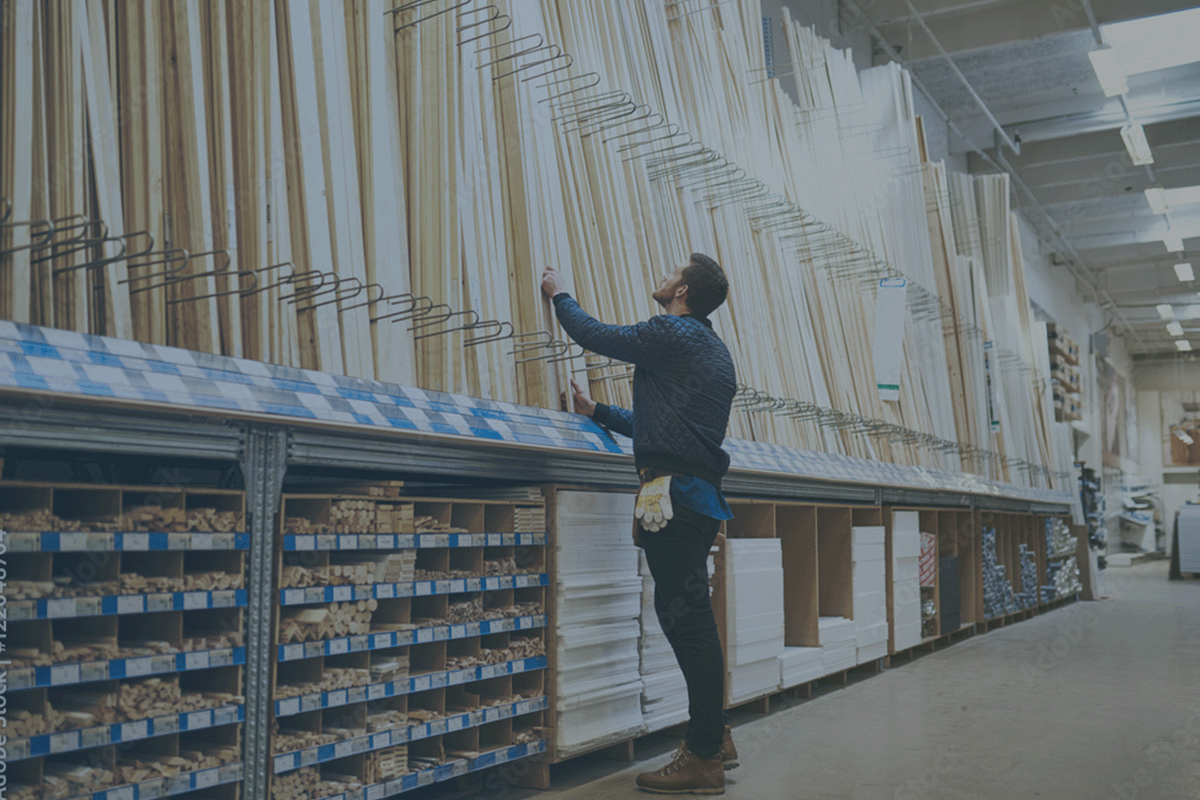
Embracing digital transformation in the building materials industry
The traditional business model for building materials supply companies remained static for an extended period. Customer loyalty primarily relied on personal relationships between sales representatives and buyers.
However, the influence of technology has transformed the landscape. With 28% of purchasing agents being tech-savvy Millennials and Gen Z, they have adopted new communication methods, product research practices, and streamlined approaches for placing, tracking, and monitoring orders.
Today, the building material distribution industry continues to grow rapidly and experiences disruptive forces from various directions, reshaping the industry’s dynamics. To stay competitive and thrive, it’s imperative to embrace digital evolution.
Shifting to customer-centric experiences: mobilizing omnichannel engagement
The first step in navigating digital transformation is recognizing the shift in customer expectations. Today’s customers demand mobile-friendly interfaces and seamless omnichannel experiences. Focusing on exceptional customer service and offering incentives is essential to ensure repeat business and build customer loyalty.
Transparency in the supply chain: meeting demands effectively
Amid supply shortages and rising prices, today’s buyers demand enhanced procurement transparency, seeking comprehensive details on material availability, delivery, and process. Precise information on delivery timelines and options is vital, given market scarcity. This proactive approach is essential in meeting your customers’ demands and upholding their satisfaction.
Customization: adapting to evolving norms
The current market reflects a substantial surge in the desire for tailor-made products, and this trend brings forth distinctive challenges and adds complexity when it comes to pricing, packaging, and fulfillment. By integrating customization tools into your ecommerce platform, you can create a smoother and more personalized experience for your customers.
So, where do we begin? By leveraging technological advancements
Staying ahead means you need to embrace the power of the latest technology. But where to start? How can the building material distribution industry leverage technological advancements to its advantage?
Here are some of the solutions we recommend.
Enterprise resource planning (ERP) integration within B2B ecommerce
Integrating your Enterprise resource planning (ERP) system with your ecommerce platform is a fundamental step. This integration enables real-time inventory and order management, significantly enhancing operational efficiency and resolving specific challenges, such as:
- Overcoming inventory visibility challenges: the building material distribution industry faces numerous operational challenges, such as maintaining precise data accuracy, orchestrating intricate system integrations, and seamlessly coordinating with supply chain partners. Though challenging, with the proper infrastructure and technology, you can optimize your operations for peak efficiency and bolster our data security measures. By integrating an ERP solution, you gain access to a centralized hub for data management, streamlining inventory control, and supply chain coordination. This integration empowers you with real-time, accurate inventory information, allowing you to serve your customers precisely and efficiently.
- Streamlining data: legacy systems and data silos, though they may initially seem like barriers, can be transformed into stepping stones toward progress. These systems often operate independently, making real-time data synchronization across multiple channels daunting. However, through the strategic adoption of ERP systems, you can facilitate data integration by breaking down these silos and enhance your operational efficiency and customer service by ensuring data accuracy and accessibility.
- Simplifying fulfillment complexity: Fulfilling orders for building supplies is complex, especially when multiple orders must be delivered to numerous locations. To get it right, logistic coordination is essential, and integrating an ERP system can facilitate efficient logistics management. Adopting an ERP will provide real-time visibility into inventory levels, order statuses, and delivery schedules, enabling you to minimize fulfillment delays and maintain your reputation for excellence and timeliness.
Adopt the right technology for the building materials industry
In this digital revolution, B2B ecommerce platforms emerge as the core of your digital transformation strategy, serving as dynamic digital storefronts that bring immense value. When seamlessly integrated with ERP systems, these platforms orchestrate real-time inventory and order management, ensuring a swift and responsive operation.
Furthermore, incorporating a Project Management System (PIM) can help streamline suppliers’ onboarding process, enhancing efficiency and collaboration.
We know selecting the right technology can be daunting, and choosing the wrong solution can have a drastic impact on your digital transformation. For expert guidance in this crucial decision-making process, you can download our free guide “Ecommerce Foundations: winning strategies for the Building Materials industry”.We’re here to ensure your digital journey is on the path to success.



